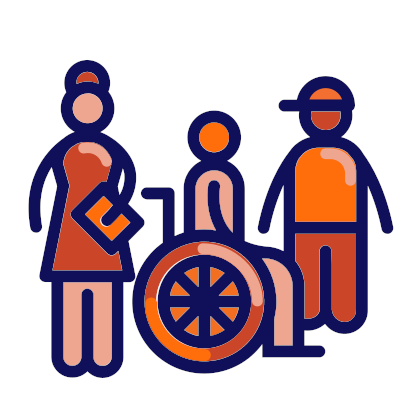Faire face à la propagande, à la désinformation et aux fausses nouvelles

Il est vital pour les écoles d'offrir aux élèves une solide éducation aux médias et à l'information dans le cadre du programme scolaire.
Les enseignants doivent être bien formés dans la matière afin de donner aux élèves les compétences nécessaires pour comprendre et évaluer de manière critique l'information rapportée par tous les médias.
Les projets en partenariat avec les autorités nationales et locales et les organisations de médias sont encouragés.
Faits & chiffres
Deux tiers des citoyens de l’Union européenne déclarent lire ou entendre des fausses nouvelles au moins une fois par semaine.[1]
Plus de 80 % des citoyens de l’Union européenne considèrent que l’existence de fausses nouvelles constitue un problème pour leur pays et pour la démocratie en général.[2]
La moitié des citoyens de l’Union européenne âgés de 15 à 30 ans déclarent que des compétences en matière d’information et d’analyse critique leur sont nécessaires pour les aider à combattre les fausses nouvelles et l’extrémisme dans la société.[3]
Qu’entend-on par propagande, désinformation et fausses nouvelles ?
Les termes « propagande », « désinformation » et « fausses nouvelles » ont parfois des significations qui se recoupent. Ils sont utilisés pour désigner les diverses formes sous lesquelles le partage de l’information peut - intentionnellement ou non - causer un préjudice - généralement en lien avec la défense d’une cause ou d’une vision morale ou politique particulière.
On distingue à ce titre trois utilisations bien différentes de l’information :
- La mésinformation : information fausse qui n’est pas partagée dans l’intention de nuire
- La désinformation : information fausse qui est délibérément partagée pour porter préjudice
- L’information malveillante : information fondée sur des faits réels, utilisée pour porter préjudice[4]
Bien qu’aucun de ces phénomènes ne soit nouveau, ils ont récemment pris une ampleur inédite du fait de la généralisation de formes sophistiquées de technologie de l’information et de la communication. Le partage de textes, d’images, de vidéos ou de liens en ligne, notamment, permet à l’information de se propager en quelques heures.
Pourquoi est-ce important de sensibiliser à la propagande, à la désinformation et aux fausses nouvelles à l’école ?
La place que les technologies de l’information et de la communication occupent actuellement dans la vie des jeunes est telle que ceux-ci se trouvent particulièrement exposés à la propagande, à la désinformation et aux fausses nouvelles. Ils passent beaucoup de temps à regarder la télévision, à jouer en ligne, à chatter, à bloguer, à écouter de la musique, à poster des photos d’eux et à chercher d’autres personnes avec lesquelles communiquer en ligne. Leur connaissance du monde et leur perception de la réalité s’appuient dans une très large mesure sur les informations diffusées en ligne. Beaucoup de parents ne possèdent pas les compétences techniques suffisantes pour suivre l’activité en ligne de leurs enfants ou pour les sensibiliser aux dangers auxquels ils pourraient être exposés. Les écoles sont donc tenues de doter les jeunes des compétences en matière d’information et de réflexion critique qu’ils ne peuvent acquérir chez eux.
« La forte progression des fausses nouvelles et de la propagande ces dernières années rend essentielle l’acquisition par les élèves de compétences leur permettant de discerner le vrai du faux et de reconnaître un éventuel parti pris[5] ».
La capacité à faire preuve d’esprit critique face à la propagande, à la désinformation et aux fausses nouvelles en ligne n’est pas qu’un outil de protection, c’est aussi une compétence démocratique essentielle à part entière. Les capacités d’analyse et de réflexion critique, la connaissance et la compréhension critique du monde, y compris le rôle des compétences linguistiques et de communication, sont au cœur du Cadre de référence des compétences pour une culture de la démocratie du Conseil de l’Europe. Elles occupent une place essentielle dans l’éducation à la citoyenneté numérique et l’éducation aux médias et à l’information.[6]
« Il est absolument crucial que les établissements scolaires forment les futurs citoyens à la compréhension, à la critique et à la création d’informations. C’est à l’école que les citoyens doivent développer, et conserver, un esprit critique leur permettant de participer réellement à leur communauté[7]».
La capacité à faire face à la propagande, à la désinformation et aux fausses nouvelles tant en ligne que hors ligne est également une compétence essentielle enseignée dans un certain nombre d’autres matières, comme l’histoire, la sociologie, les sciences, les études religieuses et l’art. Les jeunes peuvent par exemple étudier l’utilisation des slogans nationalistes et patriotiques, ou ce que l’on appelle la « propagande d’atrocités » pendant la première guerre mondiale en histoire ou les formes d’art mises au service d’idéologies particulières dans les cours d’art.
La publication sur les réseaux sociaux de commentaires négatifs visant les enseignants et les établissements est autre problème que les technologies de l’information et de la communication peuvent poser pour les établissements scolaires. Ceux-ci constatent que les parents ainsi que d’autres personnes ont de plus en plus tendance à recourir aux médias sociaux en cas de litige ou de désaccord avec l’école, concernant par exemple le règlement ou la politique de l’école ou l’attitude du personnel. Dans certains établissements, la question de savoir comment réagir face aux commentaires ou aux campagnes critiques ou diffamatoires relayés en ligne est devenue un sujet de préoccupation pour les chefs et directeurs d’établissement[8].
Quelles sont les difficultés qui se posent ?
Les établissements qui cherchent à traiter la propagande, la désinformation et les fausses nouvelles comme un enjeu pédagogique ou social se heurtent à un certain nombre de difficultés :
- L’activité en ligne des enseignants et leur expérience dans ce domaine sont généralement assez limitées et font qu’ils sont souvent à la traîne par rapport à leurs élèves. Dès lors, ceux qui ne s’investissent pas suffisamment dans leur propre développement professionnel peuvent hésiter à aborder ces thèmes en classe.
- La technologie et l’activité en ligne des jeunes évoluent à une vitesse telle qu’il est difficile pour les enseignants de se tenir informés des dernières nouveautés dans ce domaine. Les programmes de perfectionnement professionnel eux-mêmes peuvent rapidement devenir obsolètes.
- Il peut s’avérer difficile de trouver un créneau ponctuel dans l’emploi du temps des élèves pour étudier les questions de création et de partage de l’information. S’il est possible d’en aborder certains aspects dans différentes matières, il peut être problématique de trouver une fenêtre dans un programme déjà surchargé pour aborder de front ces phénomènes comme des sujets à part entière.
- L’expression « fausses nouvelles » ne signifie pas qu’il existe une catégorie de « vraies » nouvelles. Toutes les nouvelles sont sélectionnées et rédigées pour un public précis dans un but précis. Il peut être difficile pour certains établissements d’offrir la profondeur d’analyse et les compétences spécialisées pour traiter ces questions avec justesse, notamment en termes de compétence et de formation des enseignants.
« Les États doivent prendre des mesures pour promouvoir l’éducation aux médias et aux technologies numériques, notamment en abordant ces questions dans le cadre du programme scolaire ordinaire et en s’associant à la société civile et aux autres parties prenantes pour sensibiliser l’opinion à ces questions[9] ».
Que peuvent faire les écoles ?
Il est essentiel que les enseignants soient formés à l’éducation aux médias et à l’information pour donner plus de visibilité à cette question à l’école. Même si les programmes ont tendance à devenir rapidement obsolètes, la formation aura au moins le mérite de sensibiliser le corps enseignant à l’importance que ce domaine d’apprentissage revêt pour leurs élèves. Plus les enseignants y accorderont de l’importance, plus ils ressentiront eux-mêmes le besoin de mettre constamment à niveau leurs compétences.
S’il importe pour ce faire de recruter le plus grand nombre possible d’enseignants, il peut s’avérer plus efficace à long terme de commencer par désigner un enseignant, ou une petite équipe, qui sera responsable de l’éducation aux médias et à l’information à l’école. Ce ou ces spécialistes pourraient être chargés :
- de tenir le personnel informé des dernières évolutions dans le domaine des technologies de l’information et de la communication
- de le former aux stratégies de gestion de la propagande, de la désinformation et des fausses nouvelles
- de l’aider à intégrer ces questions au programme de différentes matières
- de conduire l’élaboration de la politique de l’école et la planification des actions dans ce domaine.
Ces initiatives ne sont pas les seules qu’un établissement peut prendre pour répondre aux défis que pose l’évolution rapide de l’univers de la propagande, de la désinformation et des fausses nouvelles en ligne. Il peut notamment :
- organiser des journées ou des événements spéciaux à l’école sur le thème de la propagande, de la désinformation ou des fausses nouvelles et ainsi contourner le problème de la surcharge du programme scolaire
- prévoir des initiatives d’éducation par les pairs dans le cadre desquelles des élèves plus anciens forment et conseillent les plus jeunes sur le maniement sans danger des informations auxquelles ils ont accès dans les médias
- établir des partenariats avec des professionnels extérieurs ou des entreprises spécialisées dans ce domaine (journalistes, sociétés informatiques, universités par exemple)
- tisser des liens virtuels avec les écoles d’autres régions ou pays pour offrir aux élèves un point de vue différent sur l’actualité
- recruter des parents qui sont spécialisés dans les technologies de l’information et de la communication pour participer à l’élaboration des politiques de l’établissement ou collaborer avec les enseignants pour enrichir l’apprentissage des élèves.
[1] Eurobaromètre Flash 464 , 2018
[3] Eurobaromètre Flash 455, 2018
[4] Wardle & Derakhshan, H., 2017. Désordres de l’information : vers un cadre interdisciplinaire pour la recherche et l’élaboration des politiques, Strasbourg, France : Conseil de l’Europe.
[5] When is fake news propaganda?, Facing History and Ourselves, 2018
[6] Manuel d’éducation à la citoyenneté numérique, 2019
[8] Conseil de l’Europe : Managing Controversy: a whole school training tool, 2017
[9] OSCE et UNHCR, Déclaration conjointe sur la liberté d’expression, les « fausses nouvelles », la désinformation et la propagande, 2017
 Ressources pour faire face à la propagande, à la désinformation et aux fausses nouvelles
Ressources pour faire face à la propagande, à la désinformation et aux fausses nouvelles
Multimédia
Textes officiels
Etude comparative sur le blocage, le filtrage et le retrait de contenus illégaux sur internet (2017)
Documents politiques
Etude comparative sur le blocage, le filtrage et le retrait de contenus illégaux sur internet (2017)
Sujets d’études
Etude comparative sur le blocage, le filtrage et le retrait de contenus illégaux sur internet (2017)
Outils
 Projets des écoles sur ce thème
Projets des écoles sur ce thème
Address: Makrygialos of Pieria
Country: Greece
Project: Journalistic Student Conference
 Working language during the project:
Working language during the project:
- Greek
 Themes of the Council of Europe campaign “FREE to SPEAK, SAFE to LEARN - Democratic Schools for All” covered:
Themes of the Council of Europe campaign “FREE to SPEAK, SAFE to LEARN - Democratic Schools for All” covered:
- Dealing with propaganda, misinformation and fake news
 Competences from the Reference Framework of Competences for Democratic Culture (CDC) addressed and where / how they were integrated:
Competences from the Reference Framework of Competences for Democratic Culture (CDC) addressed and where / how they were integrated:
- Values:
All students participate in our action, regardless of their particularities (background, cultural environment, disability) and develop valuing human dignity and human rights, cultural diversity, democracy, justice, equality and the rule of law. - Attitudes and Skills:
As they participate in collaborative actions they develop attitudes like openness to cultural otherness and to other beliefs, respect, responsibility, autonomous learning skills, analytical and critical thinking skills, co-operation skills and conflict-resolution skills. - Knowledge and critical understanding:
As student-journalists develop skills, like knowledge and critical understanding of language and communication, Knowledge and critical understanding of the world: politics, law, human rights, culture, cultures, religions, history, media, economies, environment, sustainability.
 Target group age range:
Target group age range:
- 11-15
 Level of education:
Level of education:
- Lower secondary education
Short description of the project:
 Aims/objectives
Aims/objectives
Makrygialos High School is a small provincial school in Macedonia of Greece with a large percentage of foreign students, in which we develop educational actions with pan-Hellenic distinctions, such as editing of the school newspaper, theatrical performances and other cultural and environmental activities.
The challenge for the students is to publish the school newspaper, to educate them in dealing with the the media and to embrace the principles of democracy and free expression. Thus, in the framework of the educational programme "Publication of the School Newspaper", they participate in the writing and publication of their school newspaper with the supervision of the School Director Mrs. Evangelia Kanali, aiming at informing and raising awareness public opinion on social, cultural, environmental, school life, health and nutrition education.
The highlight of this programme is the organisation of a “Journalistic Student Conference” aimed at students and teachers of the High Schools and the Lyceums in Pieria who issue or plan to publish school newspapers. It is an innovative educational programme that was implemented in Greece for the first time by a school and aims at educating students and teachers with media issues such as writing articles, selecting themes, gathering records, practical application, but mainly embraces the principles of intimate, honest, unselfish and democratic journalism. The Conference was held on 27 March 2018 and was attended by 307 students and 72 teachers from 17 High Schools and Lyceums in Pieria. This innovative action was selected from among 748 schools across Europe to be presented in the Oslo conference in which the new Council of Europe education campaign “Free to Speak, Safe to Learn - Democratic Schools for All” was launched in November 2018.
The Makrygialos High School journalistic group will continue this programme in the school year 2018-2019 and will organise the “2nd Journalistic Student Conference” aimed at training students and teachers in electronic journalism and in entrepreneurship, giving students experience of business processes (marketing, advertising, revenue management for public purposes, business plan). During the 2nd Conference, they will organize a Pieria School Newspaper Exhibition, so that the local society of school newspapers can see the students’ reflections and interesting creations. The Conference will be extended to the region of Central Macedonia and later to the whole of Greece, with the ultimate goal of becoming an institution for the country’s educational community. In addition, in April 2019 they will present their innovative action to students and teachers from the Istituto D’Istruzione Superiore – “Sandro Pertini” in Lucca in Italy, with whom they are twinned, hoping that it will result in a collaboration between the two schools and the developing of joint actions.
 Expected results/outcomes
Expected results/outcomes
Our innovative educational action
It is vital for a democratic school to provide students with a solid education on media and information literacy as part of the curriculum. The writing and production of school newspapers serves the basic purposes of Education, as it is an interdisciplinary activity consistent with the curriculum that combines multimodality, cooperation, critical ability, cognitive and linguistic development of students. However, journalist groups feel strongly about the need for expert information on issues related to writing and publishing school newspapers, such as:
- What are the stages of creating a newspaper?
- How to write an article, an essay, an interview, a documentary?
- What constraints are imposed by journalistic ethics, such as objectivity, impartiality, but also misinformation, misleading public opinion?
- How to avoid getting lost in the stream of information or being victim of propaganda and fake news?
- How is the management of economic issues related to the production of the newspaper?
The Director of Makrygialos High School Mrs. Evangelia Kanali, along with her student journalists, took the initiative of planning and organising the “Journalistic Student Conference” for students and teachers of High Schools and Lyceums in Pieria which issue or plan to issue school newspapers, as the schools do not have their own professional journalists. For this purpose they invited high-level media industry specialists to teach students and teachers about issues related to editing school newspapers and to basic concepts of journalistic ethics.
The Conference’s second objective was the school newspaper award. Every year, schools produce a significant number of student newspapers, the appeal of which is limited to the narrow boundaries of the local community or the school community. For this reason, the Makrygialos High School journalistic team wanted to promote and award school newspapers of High Schools and Lyceums in Pieria to motivate them into creating something new. The team presented all the school newspapers in Pieria and the Conference Review Committee awarded the "Best High School Newspaper" and the "Best Lyceum Newspaper”. The evaluation criteria used were: the variety of subjects, social, cultural and environmental issues, the correct use of language, the quality of journalistic speech.
The Conference’s third objective was a contribution to Local Educational History. The Makrygialos High School journalistic team gathered together all newspapers from Pieria’s High Schools and Lyceums so as to make an Archive of School Newspapers, to ensure they are not lost in time and with the hope that this initiative will be a small achievement in the History of the Pieria Student Press. Thereafter, the aim is to compile an archive of all the school newspapers published during the year for each subsequent Journalistic Student Conference with a view to submitting the archive at a future date to the General State Archives. Their next goal is to organise an Exhibition of the Pieria School Papers, in the belief that the promotion of school newspapers is an important factor for presenting children's views, highlighting their talents and communicating the school with their social environment.
The fourth objective of the Conference was to provide feedback to student journalists and their respective teachers. The Makrygialos High School journalist team invited archaeologists to show the students and teachers rare archaeological finds kept at the Makrygialos Museum, thus giving students the opportunity to report on, interview or write an article in their newspapers and take an active role as a journalist. At the same time, the Makrygialos High School journalistic team aimed to give visibility to the newly established Archaeological Museum of Makrygialos and to encourage Pieria schools to visit it, a goal that was immediately achieved.
 Changes
Changes
Innovative features of this educational action
The Journalistic Student Conference is an innovative event created by a democratic school. It- sets up a network of communication for the school journalist groups in Pieria and for exchanging views on important social, political and cultural issues, such as peace, democracy, equality, diversity, environment, education. It gave them the opportunity to inspire each other, to interact and take part in new creations in a spirit of co-operation and teamwork.
The Makrygialos High School journalistic group developed constructive co-operation with the Directorate of Education of Pieria, the local authorities, the local community and the Parents' Association, and asked them for funding for the awards and the Conference organization. They all responded to this request, recognizing the multiple benefits for the educational community and the city of Pieria from a democratic school open to society.
In evaluating the innovative character of this educational programme, it is clear that the above initiatives were developed by students with a different national, cultural background who:
- through their newspaper seek to gain a "step" and "voice" to express themselves, to communicate with the world around them
- through their articles, documentaries and interviews, claim the truth and raise public awareness of important issues
- listen to the needs of the educational community and strive to contribute to their innovative initiatives
- see another side of education; one where they are not empty pots filled with sterile, irrelevant knowledge, but responsible, participatory citizens who can become actors of school and social life.
The Journalistic Student Conference is an action of a democratic school that gives the opportunity to all pupils, regardless of their particularities (origin, cultural environment, disability):
- learn how to learn, how to conquer exploration and cooperative knowledge;
- develop critical ability and scientific thought to explore the causes or the consequences of problems;
- seek and disseminate information and ideas from around the world through their school papers;
- transform original ideas into innovative applications and activate their talent and skills for expression and creation;
- practice the recording of different textual items, such as articles, essays, interviews, documentaries and the production of oral and written speech;
- develop social and communication skills such as responsibility, planning, strategy and planning skills, needs analysis, organizational, teamwork and communication, decision-making and problem-solving strategies to become active in the future and socially sensitive citizens.
The Conference gives teachers the opportunity to understand that they should:
- teach their students how to collaborate by taking roles and to feel creative by composing one or more sheets of their newspaper
- be proud of the collective work, overcoming individualism and personal insecurities
- ensure a pleasant and attractive school environment for all pupils without discrimination or exclusion
- organise school life according to the democratic principles of freedom, dialogue, equality, justice, respect for diversity
In addition, students and teachers following the suggestions of the high-level media industry specialist journalists get to:
- realize the power of the press and the importance of the news
- become familiar with press-related concepts such as misinformation, false news, brainwashing, propaganda, anaesthetising of receivers;
- learn to apply and exploit a variety of different sources of data acquisition, but also critically manage the knowledge they derive from the internet
- understand the concept of a cross-thematic approach to information
- sharpen their critical thinking and perceptions to identify useful information from unnecessary information, insignificant events from worthwhile news
- learn to use methods and practices of science, technology and the arts to investigate, judge, comment, argue, and express themselves artistically
- practice a variety of writing styles, such as article, essay, interview, documentaries, op-ed.
The media journalists also help students and teachers to understand that propaganda, misinformation and fake news can polarise public opinion and undermine democracies and that there is a duty to apply the following fundamental principles of journalistic ethics:
- utilise a variety of different sources for data mining and learn to distinguish useful information from unnecessary information
- collect, cross-check and document information
- keep professional secrecy about information sources
- transmit news regardless of their personal political, social and religious beliefs.
- avoid legal difficulties by working responsibly and according to professional ethics.
- publicize the truth objectively and impartially and not by misleading public opinion with false news and propaganda.
 Challenges you faced
Challenges you faced
Organising the Journalistic Student Conference was a bold and difficult task. The challenges were important, but the benefits were great. Press articles, TV quotes and letters of congratulation - now in the school archive - all demonstrated that a small provincial school managed for the first time in our country to organise a Conference with high-reaching goals and a strong impact on the local and wider society.
To sum up, the Journalistic Student Conference is an innovative pedagogical action of a school operating according to democratic principles such as freedom and responsibility, participation, equality and justice. A school where teachers offer not only knowledge but vision and passion for their job and open new horizons according to the interests and sensitivities of students who in turn learn to go beyond the narrow boundaries of the school and become creative, responsible and active citizens in keeping with democratic culture.
 Time-frame of the project:
Time-frame of the project:
The Makrygialos High School journalistic group will continue this programme in the school year 2018-2019 and will organise the “2nd Journalistic Student Conference” aimed at training students and teachers in electronic journalism and in entrepreneurship, giving students experience of business processes (marketing, advertising, revenue management for public purposes, business plan). The Conference will be extended to the region of Central Macedonia and later to the whole of Greece, with the ultimate goal of becoming an institution for the country’s educational community.
 Council of Europe materials on citizenship and human rights education used while preparing or implementing your practice:
Council of Europe materials on citizenship and human rights education used while preparing or implementing your practice:
- Reference Framework of Competences for Democratic Culture
- Living Democracy - manuals for teachers
- Democratic governance of schools
- All Different – All Equal
- Managing controversy
- Teaching controversial issues-training pack
- Signposts
- We CAN!
- Mirrors
- Human Rights and Democracy Start with Us – Charter for All
- Freedom(s) - Learning activities for secondary schools on the case law of the European Court of Human Rights
- How all Teachers Can Support EDC/HRE: A Framework for the Development of Competences
- Multimedia Material (ex. video “Beat Bullying”, series of cartoons “Democracy and Human Rights at School”, video “Corporal punishment at school: how two parents decided to change things”)







